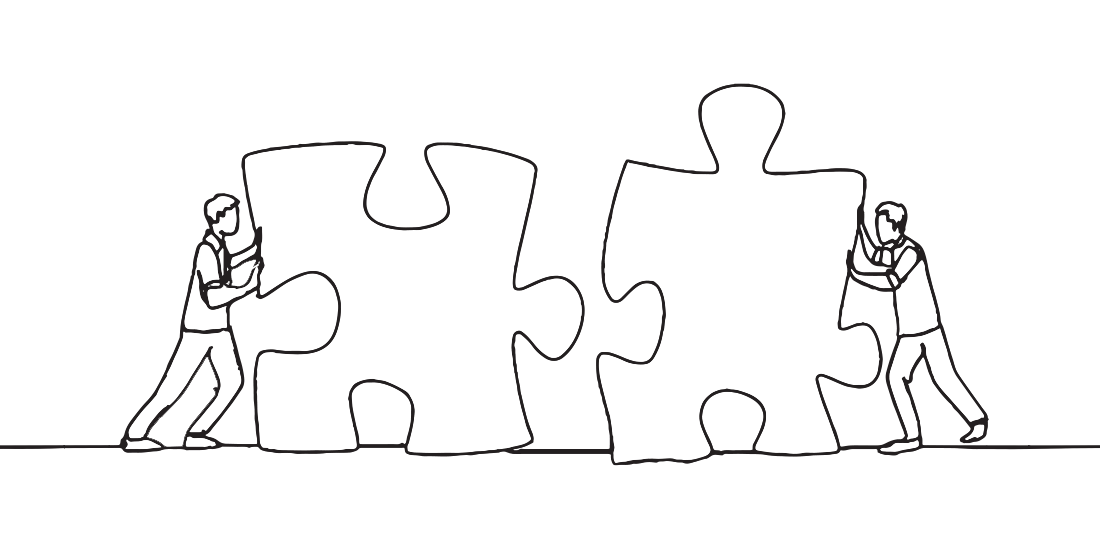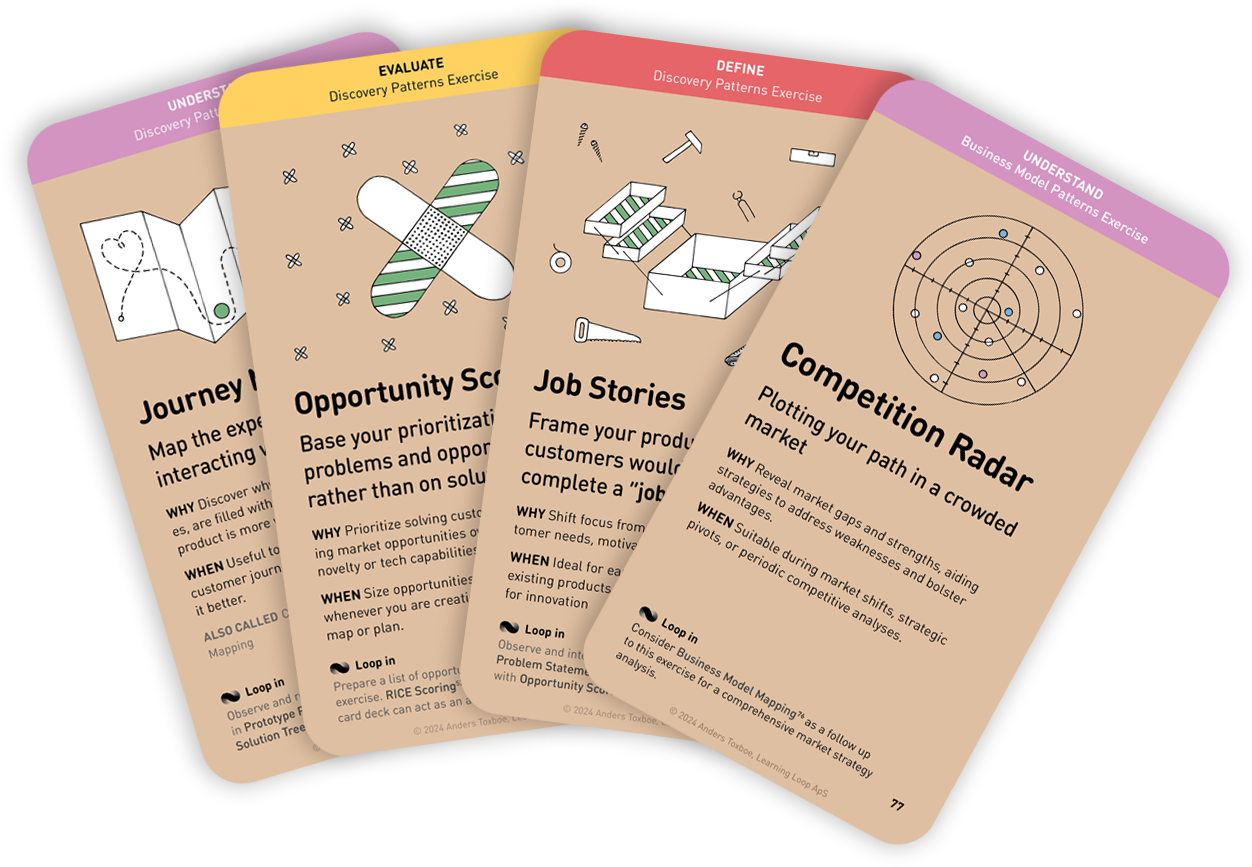Workshop Exercises: Ideate
Mash-up
Combine two or more items to explore fruitful and unexpected connections

Why: Break down mental blocks and spark odd and unexpected ideas in an easy, fast, fun, and energizing way
When: As traditional brainstorming has hit a plateau, this exercise can help generate novel ideas or solutions
Instructions for running this play
- Frame problem. Articulate on the challenge you want to explore. How Might We…* is a great way to frame it.
- Narrow categories.Pick two broad and unrelated categories.
Example: Hospitals and hotels
Example: 3D printing and waking up in the morning
Consider picking from one of these categories:- Technologies (phones, GPS, electric bikes, dishwashers, etc.)
- Human needs (love, transportation, falling asleep, etc.)
- Existing services (Google Translate, Spotify, AirBnb, etc.)
- Sources of data (Health records, bus timetables, census data, etc.)
- Global challenge (Climate change, inequality, wars)
- Generate. Starting with one category at a time, list as many elements of these two experiences you can within a Timebox of three minutes, Have participants Playback
- Mash-up. Combine items from the two lists to ideate as many new products, services, or experiences as you can. Timebox the session to 10-15 minutes.
Instructions for running this play
- Brainstorming. Gather the group and brainstorm ideas on technologies, human needs, and existing services. Spend 3 minutes on each area, writing one idea per sticky note. Make it active and fast-paced, with participants sharing ideas aloud. Cluster the sticky notes on the wall for each area.
- Mash-ups. Form small groups of 3-5 participants. Give them 12 minutes to create mash-up concepts by combining elements from the brainstorming. Each concept needs a catchy name and should be documented on an A4 paper.
Online: use breakout rooms and time updates for a quick pace. - Presentations. Have each group present their mash-up concepts to the whole group. Display all ideas on the wall to show the volume of concepts generated.
Online: gather all ideas in one area for display. - Development (optional). Teams choose a favorite concept to develop further. Allocate 30 minutes for detailed exploration, functionality, and creating a business model. Visualize concepts on flipchart paper and present them.
- Debrief and Reflect. Facilitate a debrief session to reflect on the experience. Discuss feelings, challenges, personal insights, and learning about idea development. Encourage applying these learnings in the future.
Tips to perfect this play
Master and adapt the play to fit your context and needs.
Tip
Part participants into groups of 3-5
Tip: Volumne is king
Emphasize the focus on the volume of ideas created in the short amount of time
A collection of workshop exercises that will help you ditch dull meetings and facilitate with confidence. It will help you master the design process and have more productive time with your team. The card deck will be ready for purchase in the end of 2026 and is now undergoing rigorous testing.
Reserve your deck!